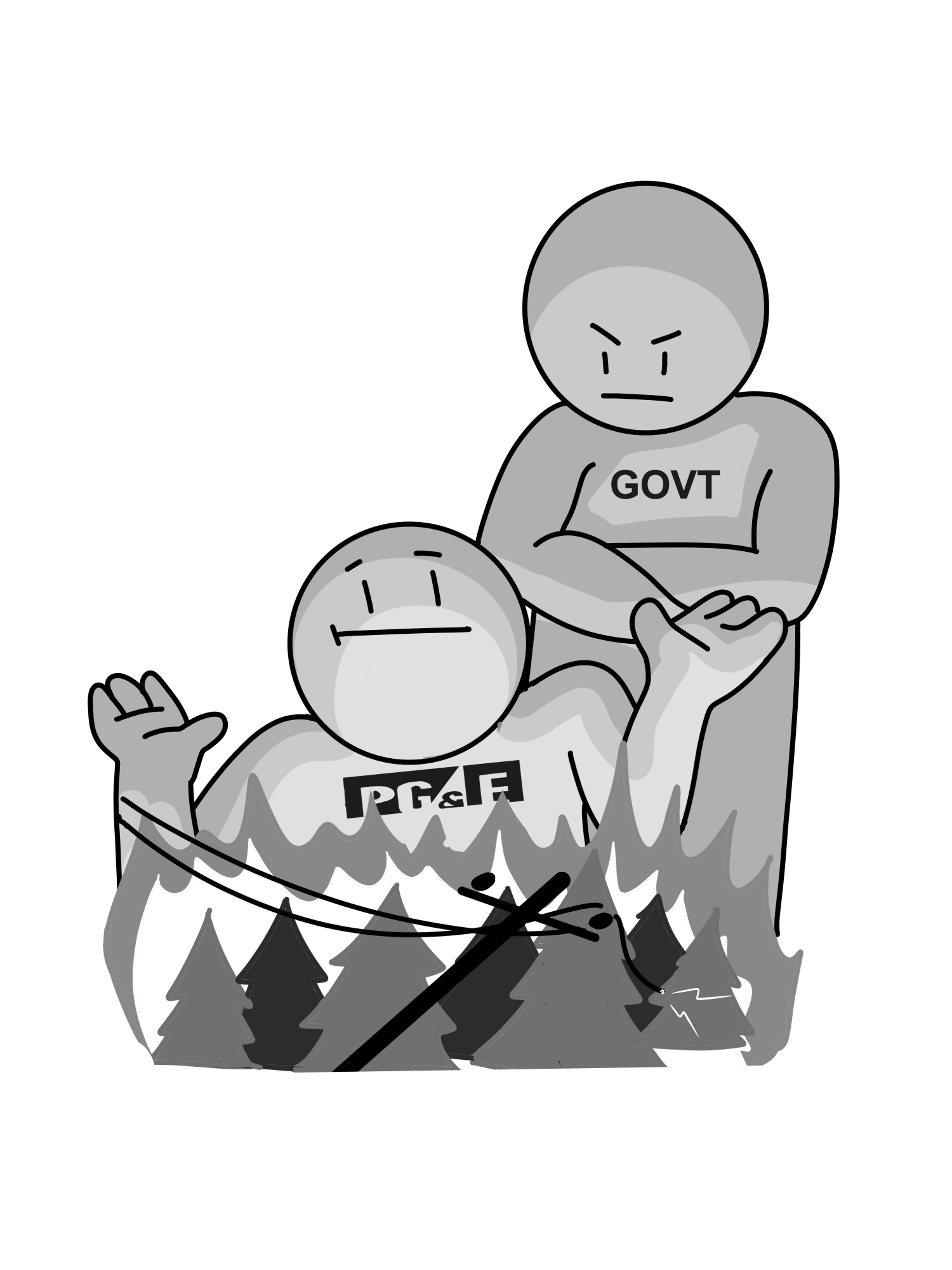

On Feb. 3 California Senator Scott Wiener introduced a bill that would force the Pacific Gas and Electric (PG&E) company to become a public utility that manages systems for public services. PG&E will also need to sell their shares to the state to be transferred to the Northern California Energy District, which is used for public benefit.
“When [PG&E is] owned by the government, you don’t have those considerations [for the public and shareholders],” said history teacher Heather Sadlon. “If you’re someone who supports the public ownership, you’re getting rid of that for-profit kind of capitalist aspect of the company. Critics like Senator Wiener would say that as a for-profit company, it’s [also] not able to [successfully] focus on safety and the way that the public expects it to deliver power.”
The bill’s goal is to promote worker safety and homeowners across California to prevent future mishaps that have occurred in the past.
“In recent years, many of the fires that have devastated families have been so frequent mainly because PG&E didn’t follow many safety regulations [such as their] neglect for cutting trees or making sure their oil pipelines were being maintained,” said senior Daniel Duan. “If the government did decide to acquire [their] resources and make it a public sanctions company, I’d say the government could impose more regulations and make it less dangerous for homeowners.”
PG&E attempted to solve the wildfire issues by temporarily shutting off the electricity, but that left many homeowners frustrated.
“There wasn’t a repeat to the devastating wildfires [last fall] which is awesome. On the downside, we saw the power grid being shut off several times as a precaution, so there were questions about how PG&E is making these decisions,” Sadlon said. “There’s a balance between safety [and] expecting the service that we’ve paid for, so I think Senator Wiener’s arguing that if we have a public entity with the government, the decisions will be made to more effectively deliver that power while keeping the public safe.”
While the bill is expected to bring some positive outcomes, PG&E opposes it. According to the San Francisco Chronicle, about 12,000 employees of PG&E protested at Wiener’s news conference, claiming that their facilities are not for sale and that they don’t want their pensions touched.
“Even though PG&E makes a small profit, those profits are widespread over a long period of time,” said government teacher Kevin Nelson. “Bankruptcy is common in business unfortunately, so what’s going to end up happening is [that] powerful people who own pieces of PG&E are going to say no [to the bill].”
Along with finances, PG&E is upset about how power will be redistributed between the state and company. However, they are becoming a public utility because bankruptcy for PG&E due to financial consequences for their poor safety record.
“On the concept of business and risk, the state carries very little risk because the private company is carrying out the duty,” Nelson said. “If [the company] shifts back to the state, then the state is on the hook for any issues and problems that come up, so realistically what PG&E is charging its customers is covering all of its costs. [Therefore,] they’ll break even, but if anything goes wrong, now the state is going to be the agency who’s liable to pay out any type of damages.”
Even some of the California residents are skeptical about how Senator Wiener will manage to run PG&E as a public utility.
“To be fair, [PG&E is] not doing the best job that they can. But my issue with the government taking away all of [their] resources and making it a government-run company [is that] I don’t know if [they] can do as great of a job as PG&E does especially with their laundry list of policies and other things that they need to do,” Duan said. “PG&E is such a huge company that manages electricity for millions of Californians that it would be difficult for the government to strip away all of their resources and manage them themselves.”
Although many PG&E members are dismayed by this bill, Wiener has promised that the company will still have wage protection and collective bargaining and become more transparent.



